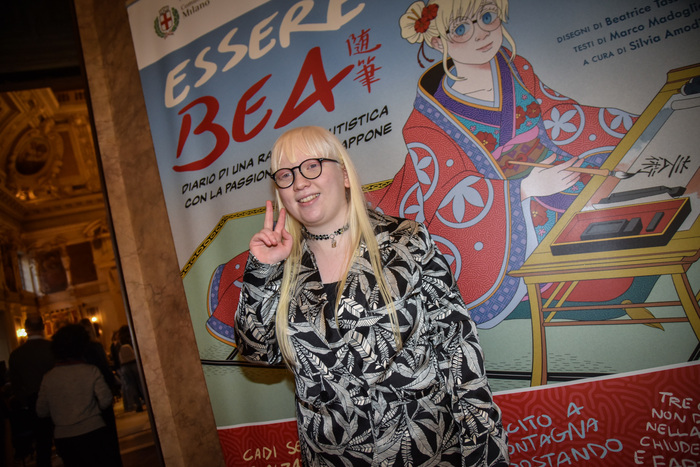Writing a hundred pleasant and ruthless pages, like life, from forgiveness, gratitude and belonging: this is the main success of Karima Ziali (Beni Sidel, Morocco, 1986), in her first work, A prayer without God (Esdrújula editorial). This means that a daughter of the Moroccan diaspora, from the punished Rif, who arrived in Barcelona before the age of compulsory schooling, can tell us a story (and tell herself a little) without revenge and do so with a comprehensive and intelligent look. Also, from a guy's point of view.
Ziali is a Spanish author, born "mora", like the characters in her novel. In his stories he approaches writing with love. Without traces of some bitter and limiting resentment with which they usually grow up, not without reason, many girls from peripheral and rural Morocco who have felt the double or triple tear of emigration, marginalization and foreign incomprehension, added to the suffocation of their own family impositions that sometimes crush them.
A prayer without God seems to be born from the resistance to continue reproducing stereotypes. Perhaps because this is the real existence of many children of Maghrebi emigration in Europe.
Karima Ziali, writer
The second success, which could be the first, is to avoid the costumbrismo and folklore that is expected from the narrative of the Moroccan neighbor, as well as the panchartist prose (or tweeter) of the segregation of their own or the discrimination of the host community. This nouvelle (short novel) that, at times, rushes to solve plots in which you want to continue investigating, does not have an iota of reductionist, nor does it want to please anyone. Much less, hide or deny. And it's very entertaining.
Contemporary in the best sense of the term, A Prayer Without God seems to be born from the resistance to continue reproducing stereotypes. Perhaps because this is the true existence of many children of Maghrebi emigration in Europe, although on one side and the other it is quite functional to continue perpetuating a simplistic, flat imaginary, which allows a position to be taken once and for all.
Every life is unique. Thus, that of Morad —its protagonist—, a twenty-year-old Muslim who has grown up in Catalonia and wants to study philosophy, although that contradicts the will of his mother, the first and only love of every child in any culture, the eternal mold, the implacable symptom of affective debt. The main dramatic structure seems to be completed with the appearances of that immigrant progenitor, Farida, a strong Riffian who has well learned the histrionic gifts of the mothers around her, and who knows since she was born what is the task of a woman in the family: to command by obeying.
Around these two main characters of Ziali's book, brothers and sisters appear, each responding in absolutely different ways to the demands of both family tradition and the maelstrom apparently enjoyed by this European present that revels in all consumption.
It is a book that will help us shake off dogmas and a bit of Western laziness
The quiet father also walks by, dedicated to supporting the home, fulfilling his family and community functions with diligence. As expected of every true rayel (man and husband, in Dariya), since firm obedience – at least in public – stands as the main virtue in sons of all ages to whom society (and, above all, mothers and grandmothers) have already allowed many mischief.
Fortunately, the paintings of the characters have precise outlines. The images of the life of this Amazigh (Berber) family nucleus, on the outskirts of Barcelona or on their trips to the Rif mountains, are attractive because they are well written. Ziali considers us adults and does not spare us readers the everyday details, some very funny, that migrant families share, nor the essential anecdotes about all the rich supernatural world that cohabits between relatives and neighbors in North Africa. The cast of secondary characters is also clearly drawn: among them, the classmates of the institute, the patient teacher, the halal butcher, the muezzin of the mosque and the children of the Koranic school who do speak the language of the Book.
In no case, the author uses condensed (or pre-cooked) ingredients, because she dares to get the most out of the anthropological, possibly, after her years of studies in philosophy and anthropology, but with the freedom and truth of her own identity reflection.
By the time we relax, because we easily enter that territory of loyalties and appearances, believing that Morad's adolescent conflicts were enough to sustain the dramatic arc, Karima Ziali reserves for us a sudden zamarreo. Final. Fade to black.
Without a doubt, it is a book that will help us shake off dogmas and a bit of Western laziness. The one that leads us to have an opinion, from the news headlines, in almost all the complex cultural issues that cross us, from the hijab to the adoption of a foreign language to write, through the fast of Ramadan or our supposedly savior secularism.
You can follow PLANETA FUTURO on Twitter, Facebook and Instagram, and subscribe here to our newsletter.

/cloudfront-eu-central-1.images.arcpublishing.com/prisa/MAPSVZS6DVCCLK23HK3H6OVMPI.jpg)












